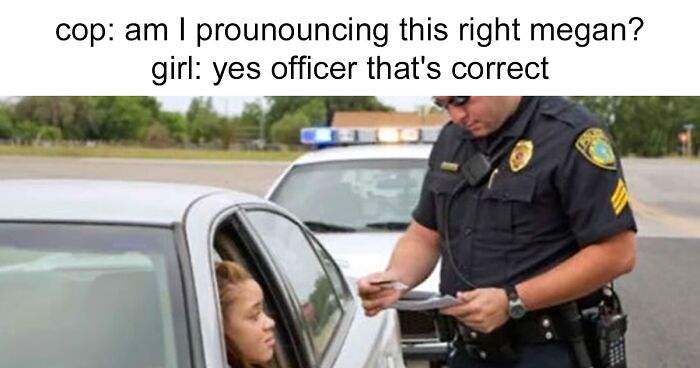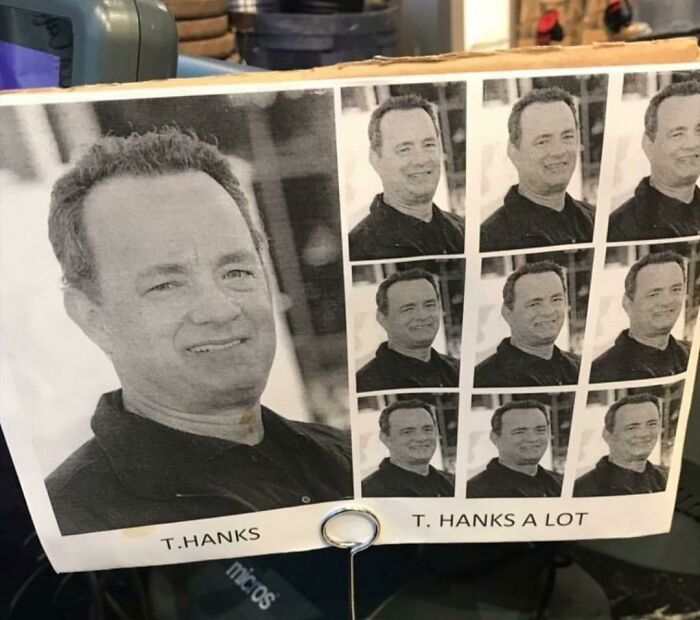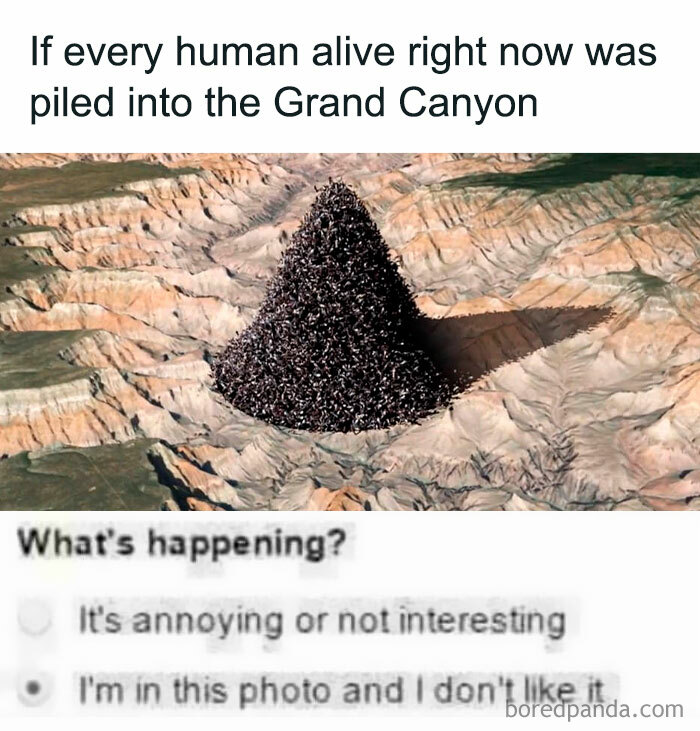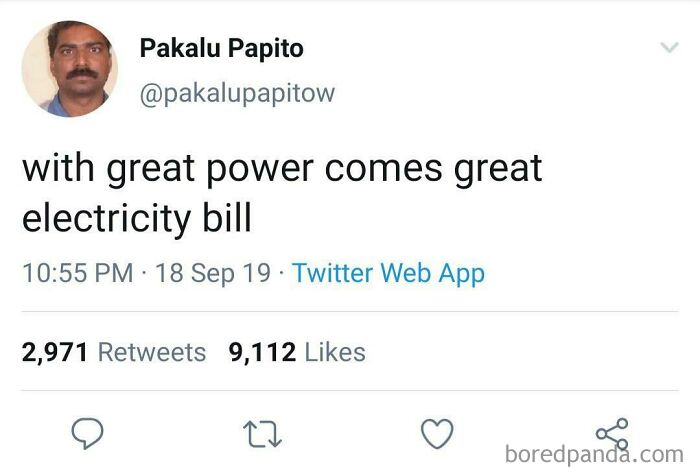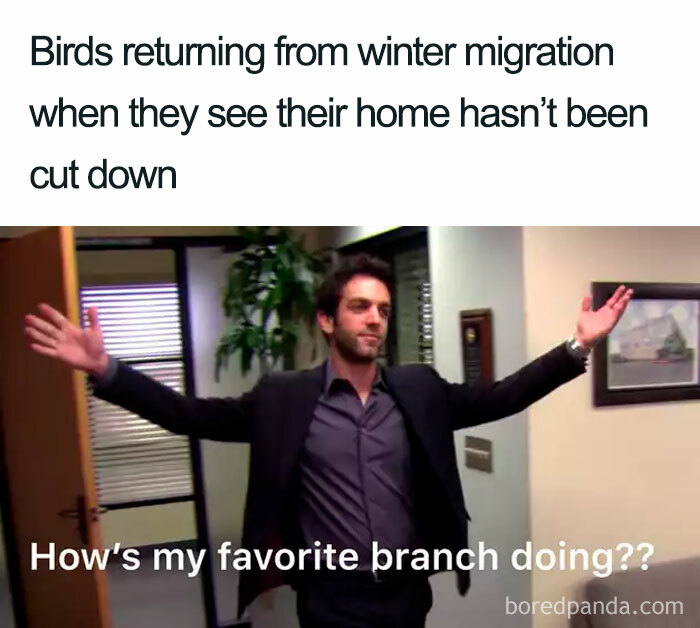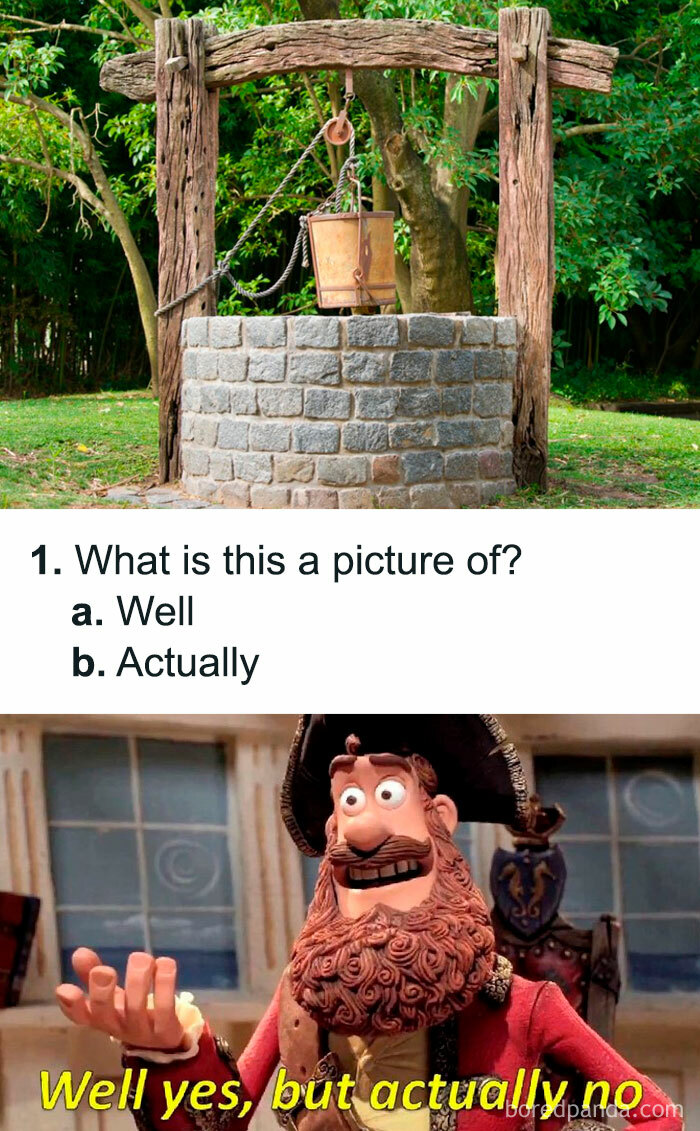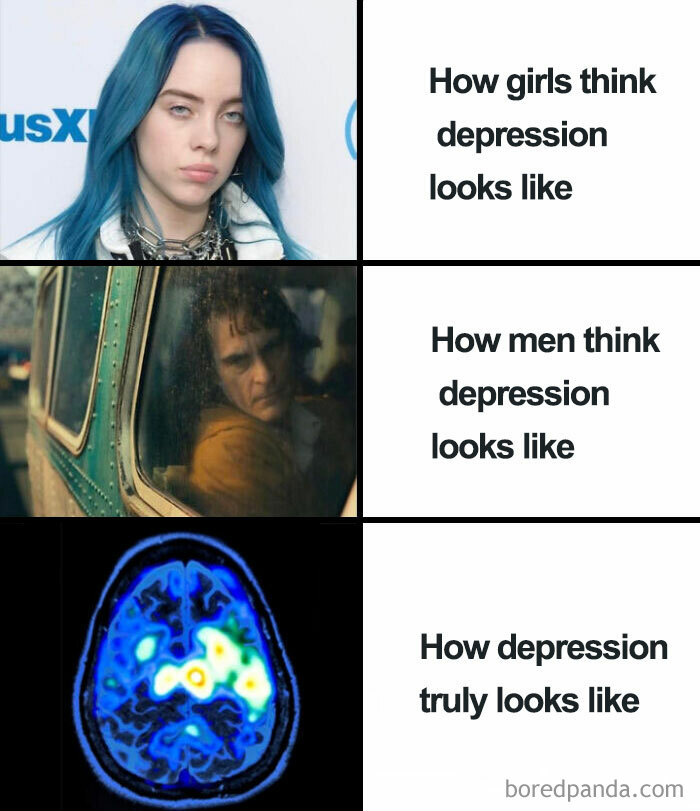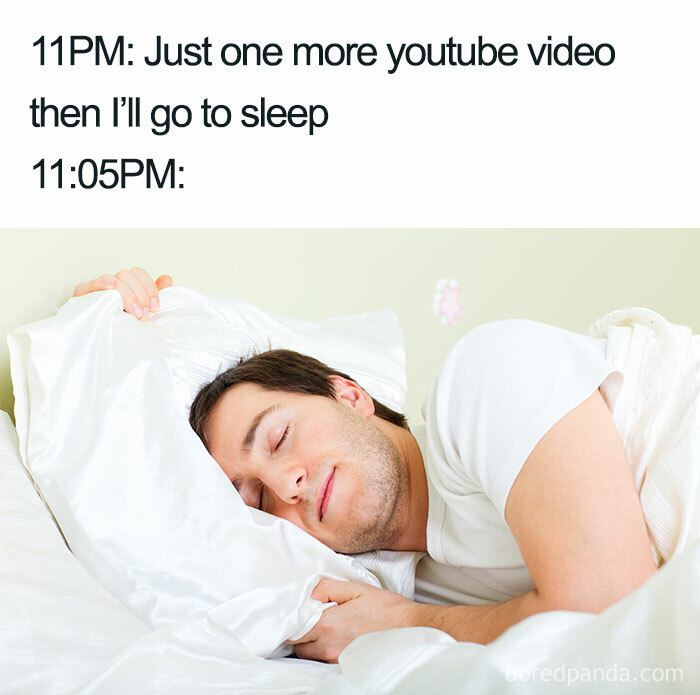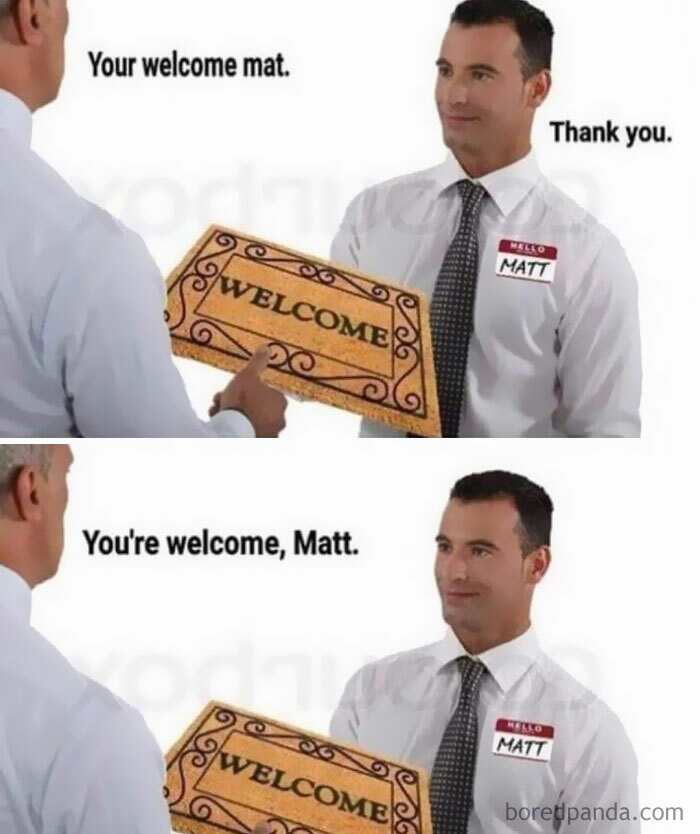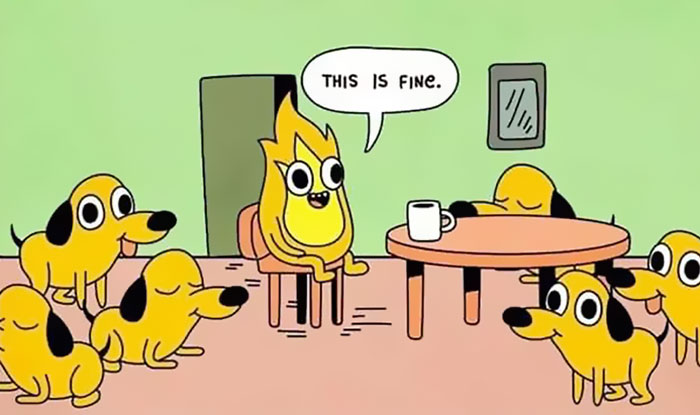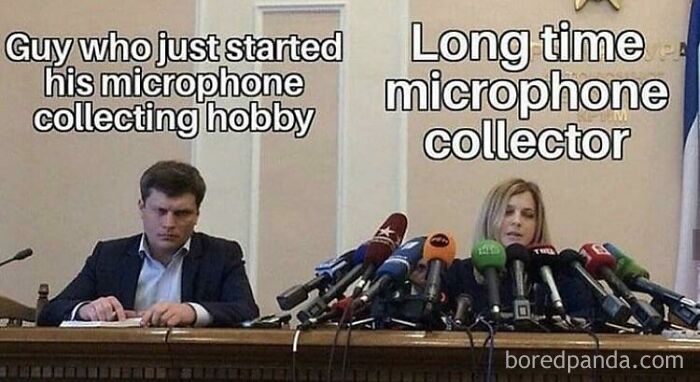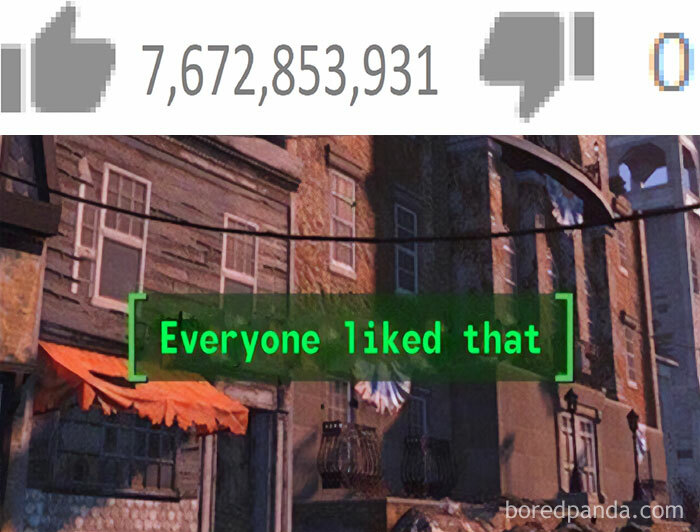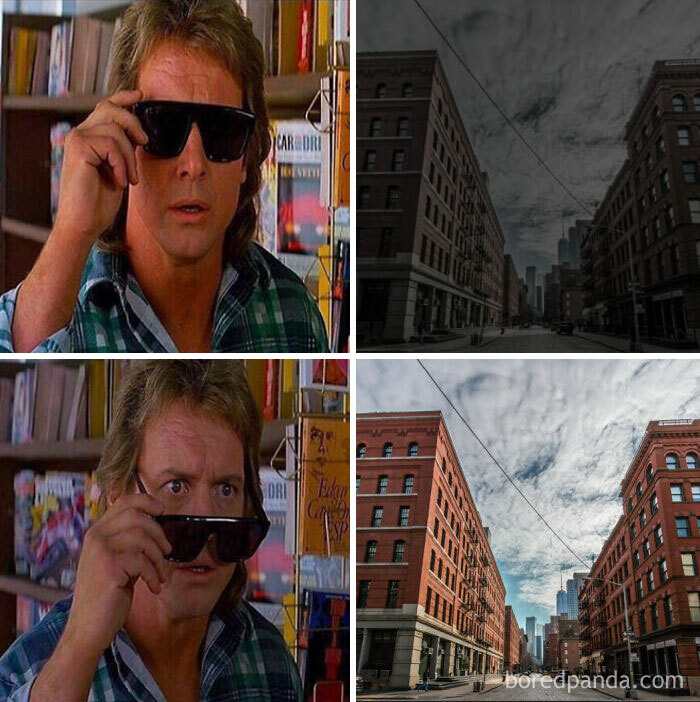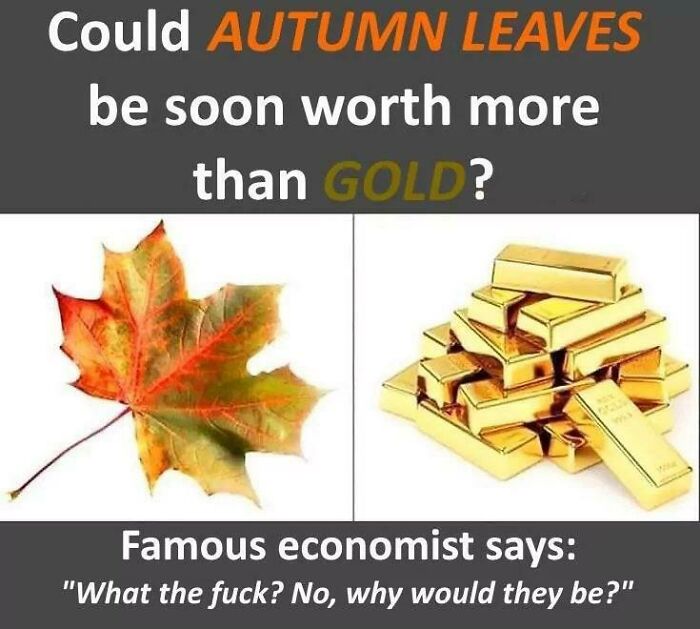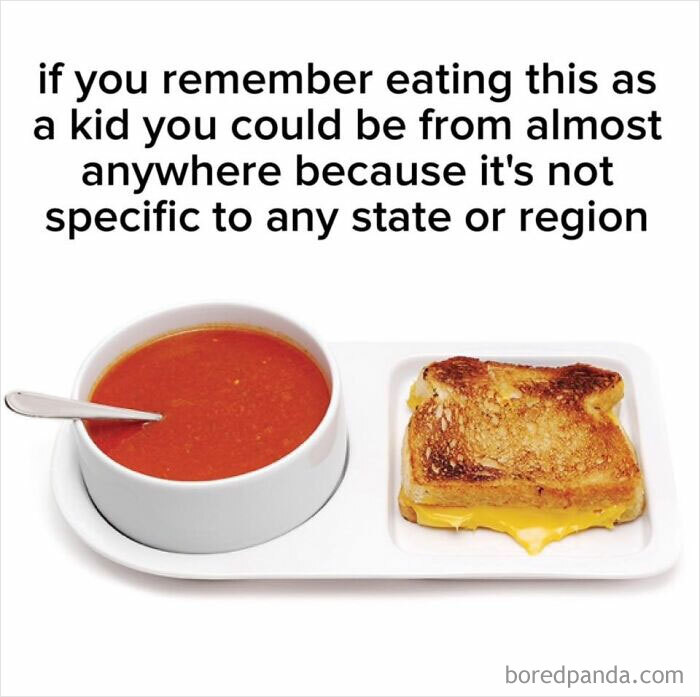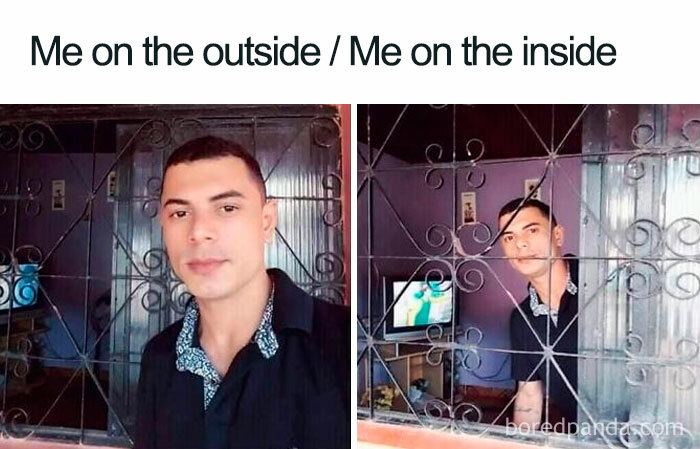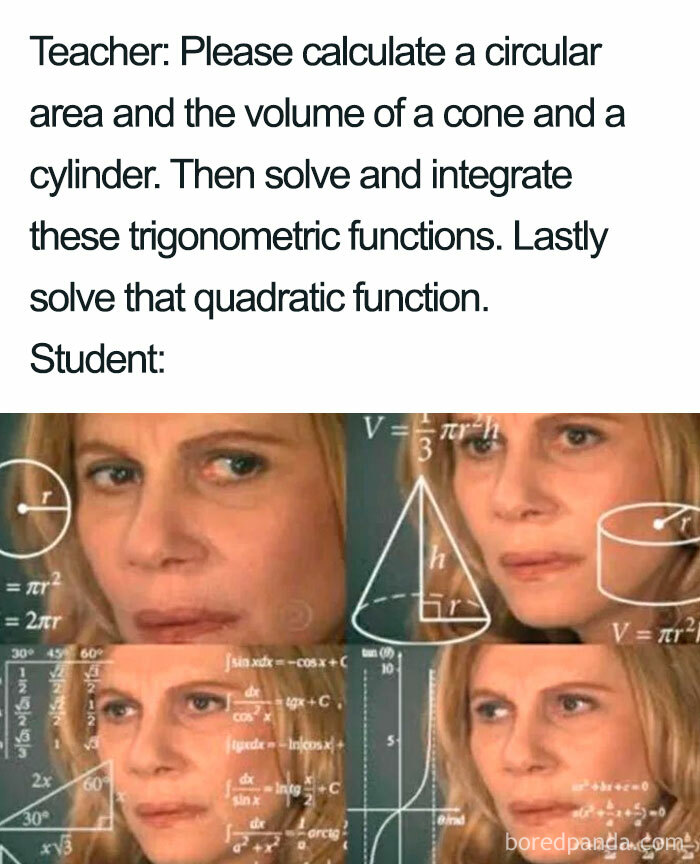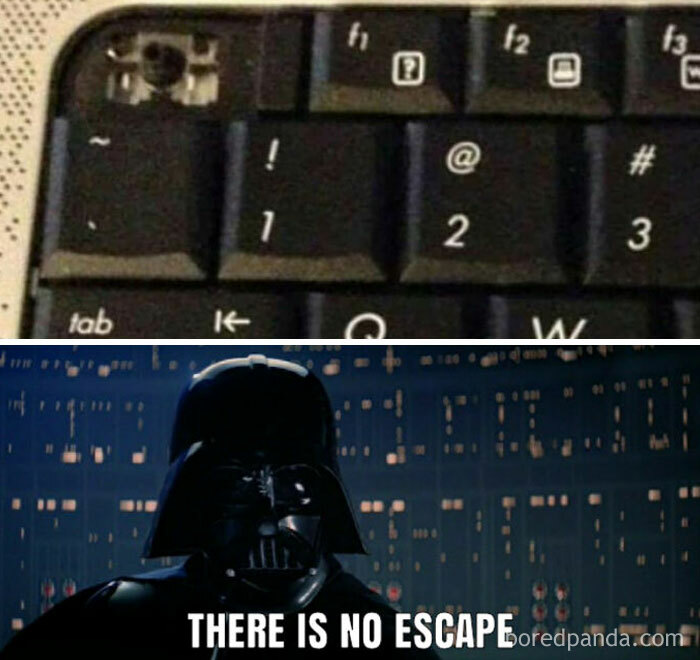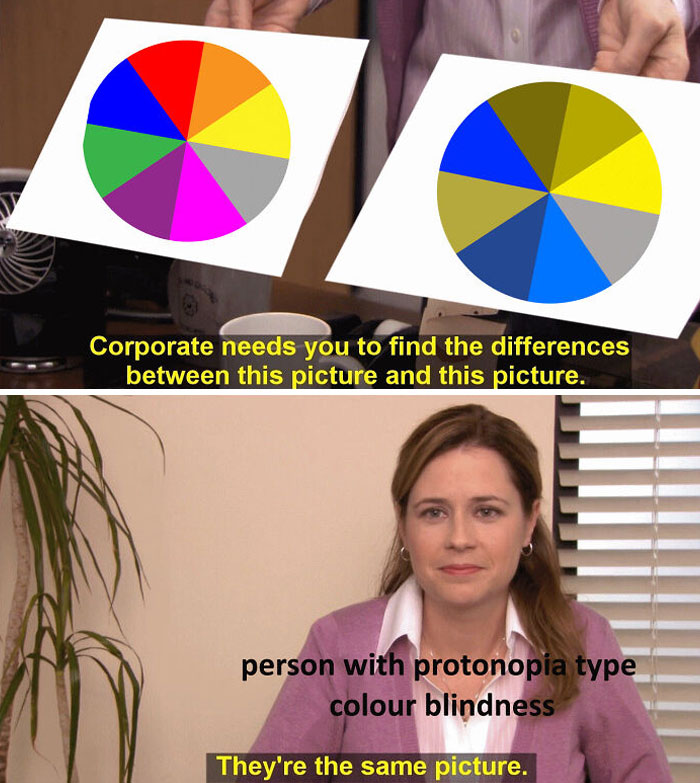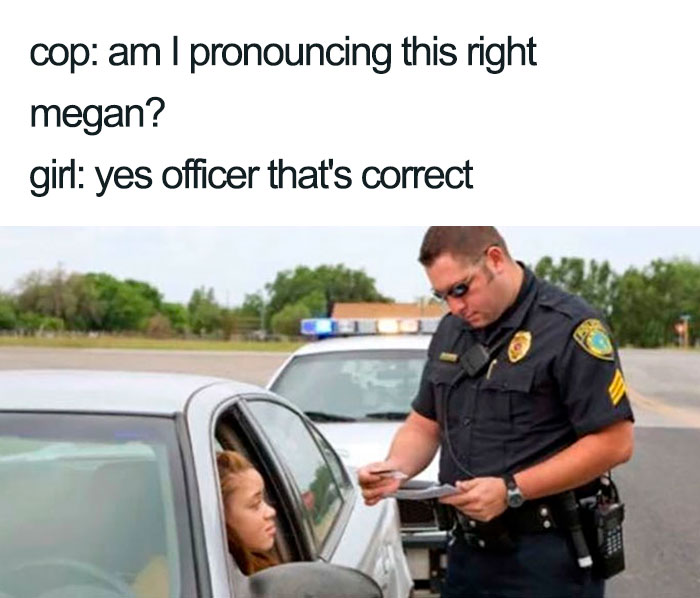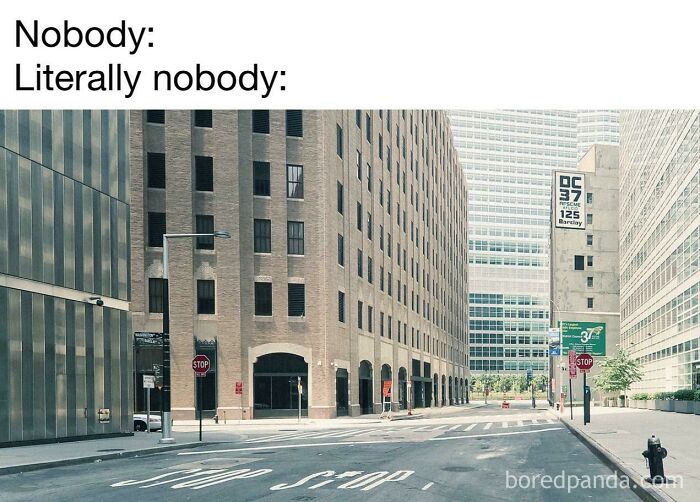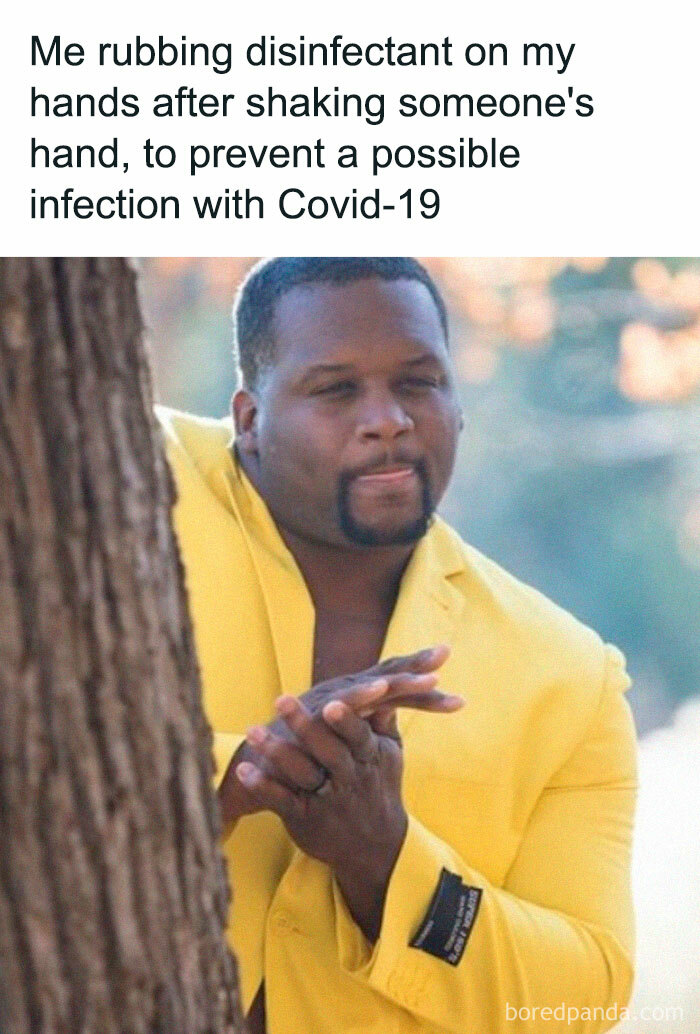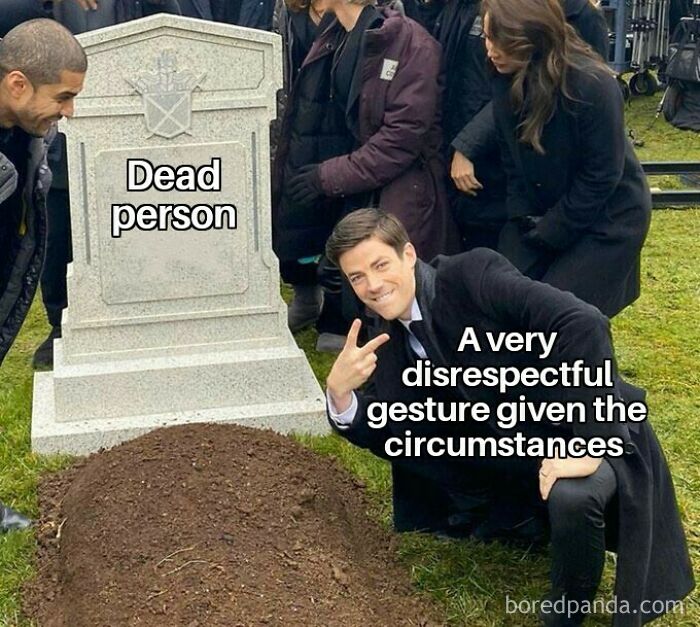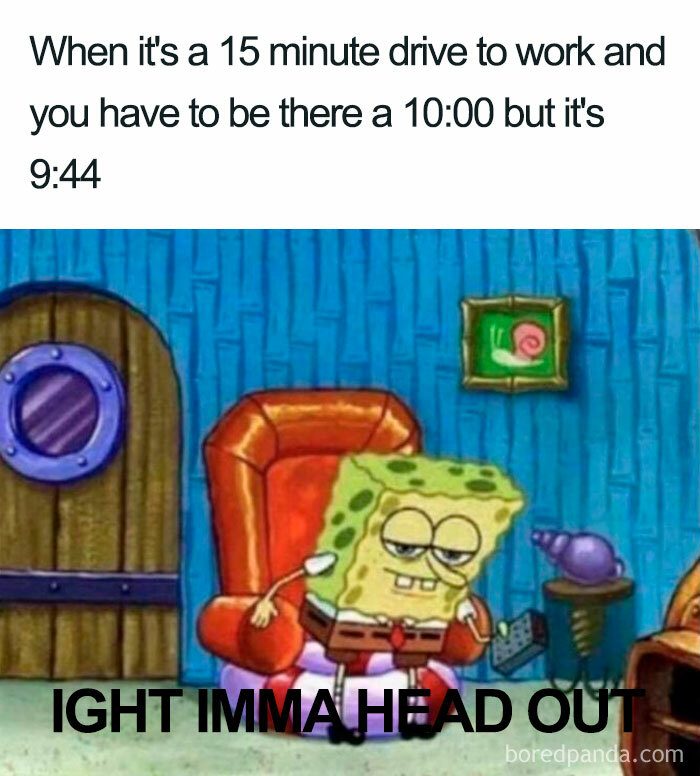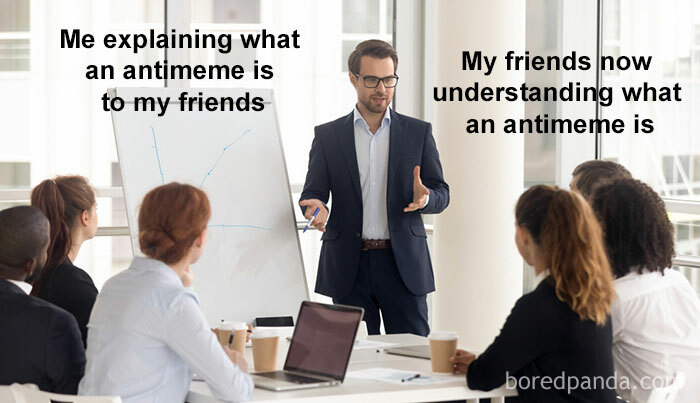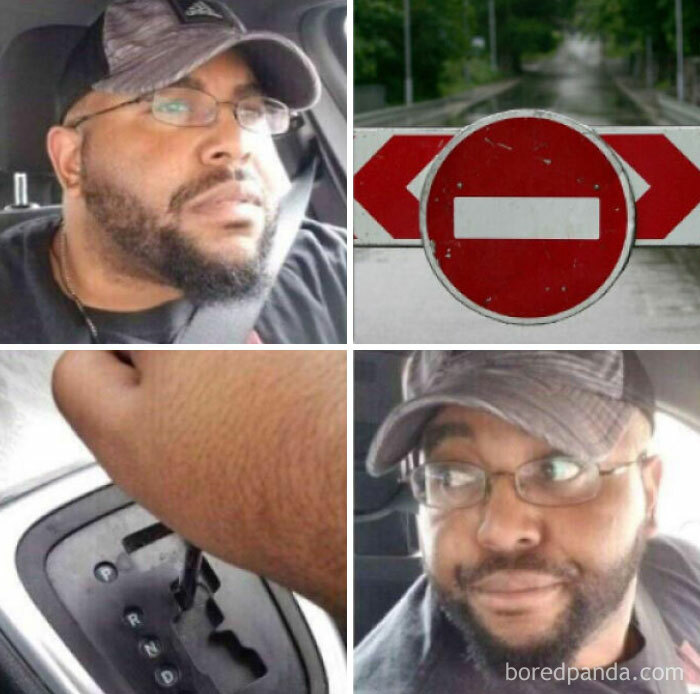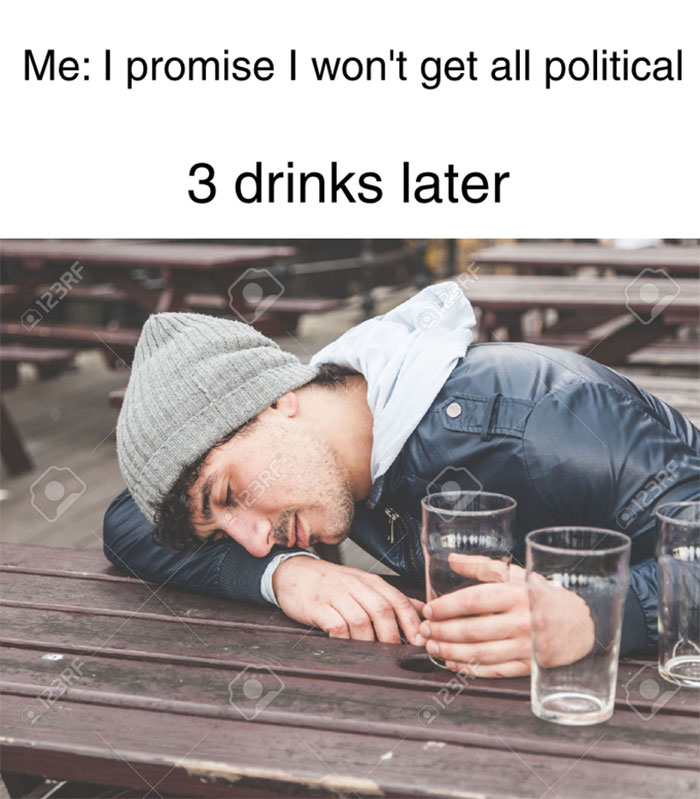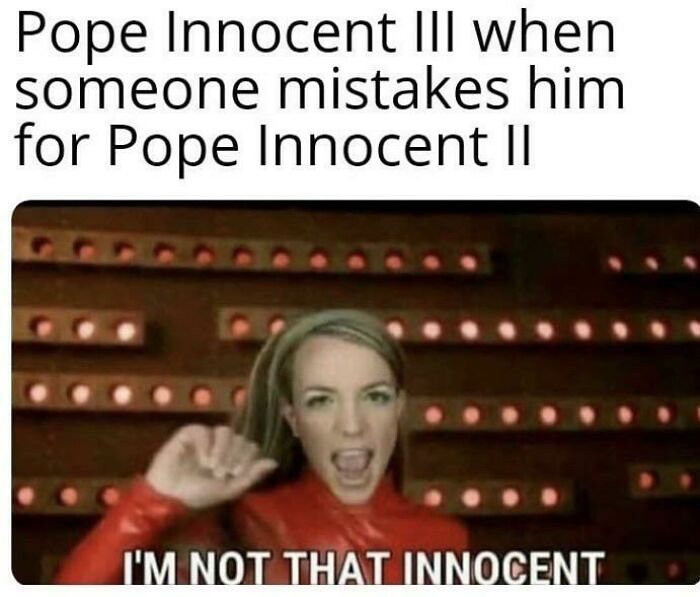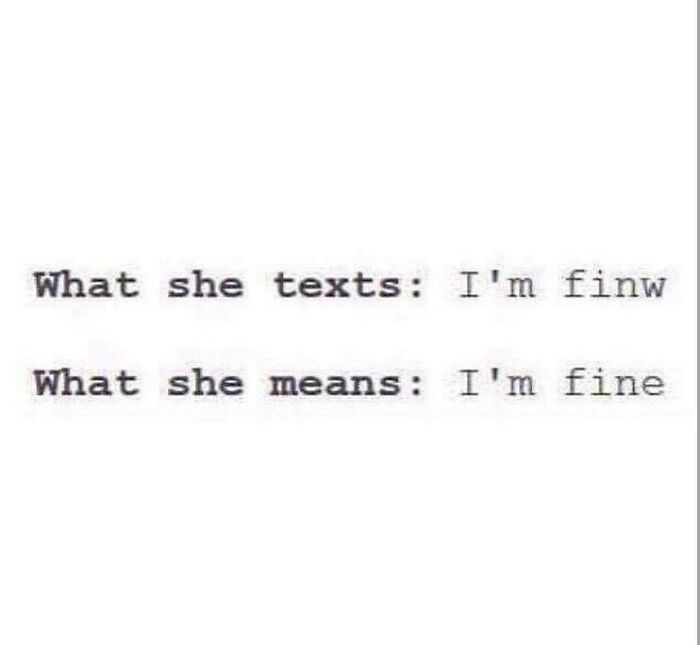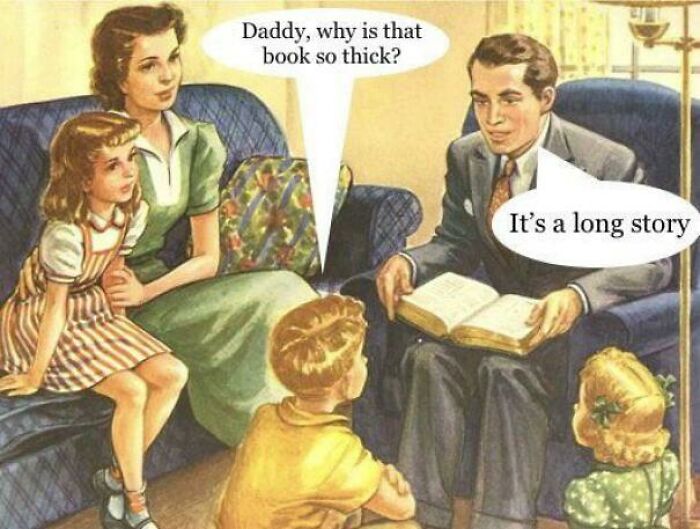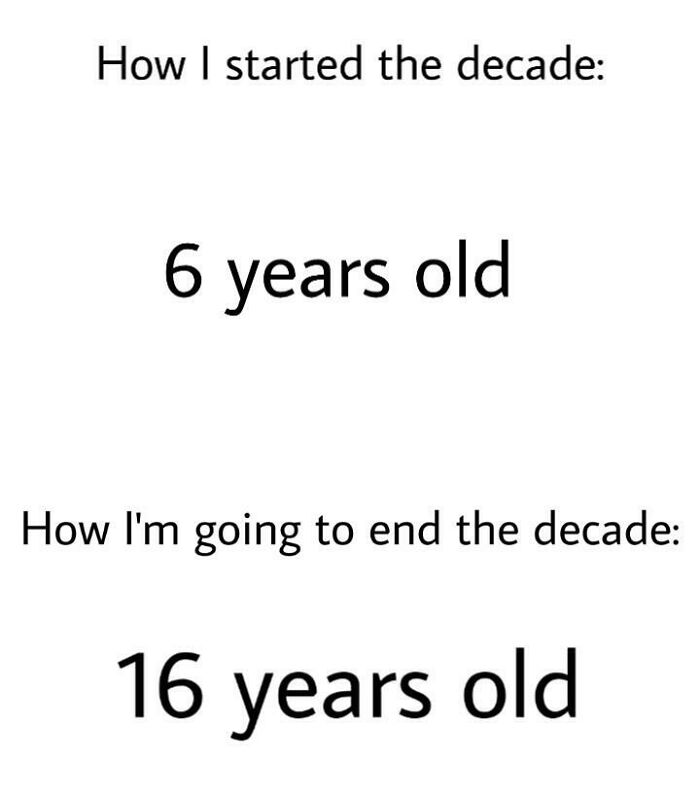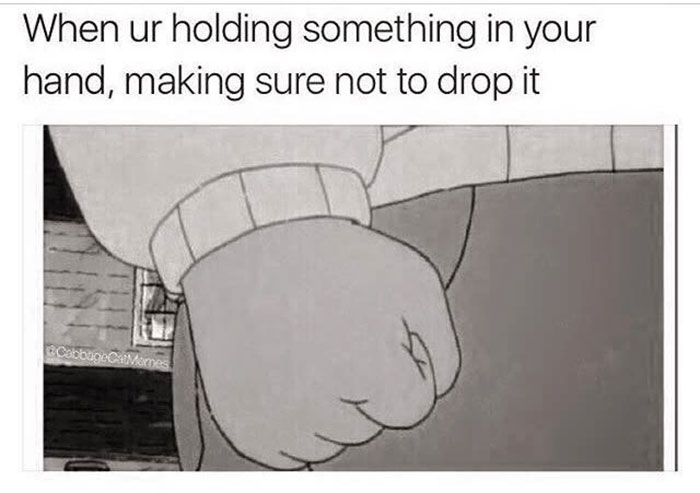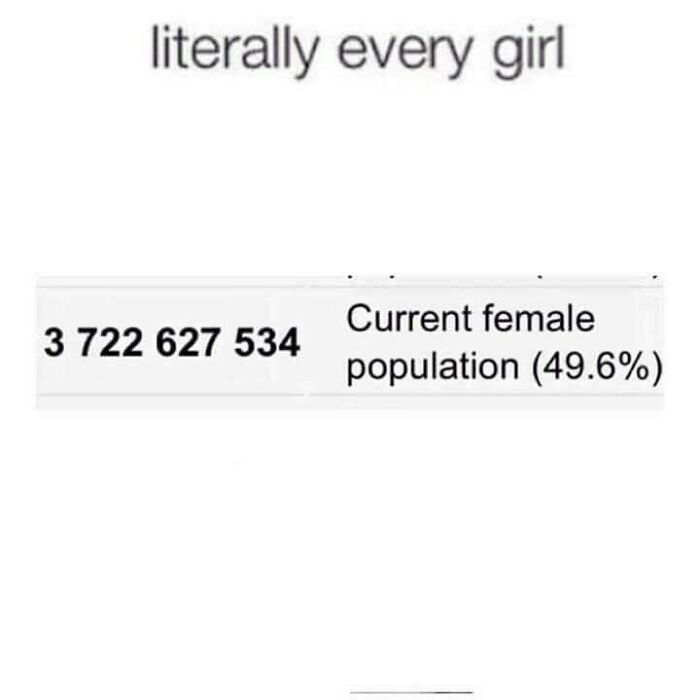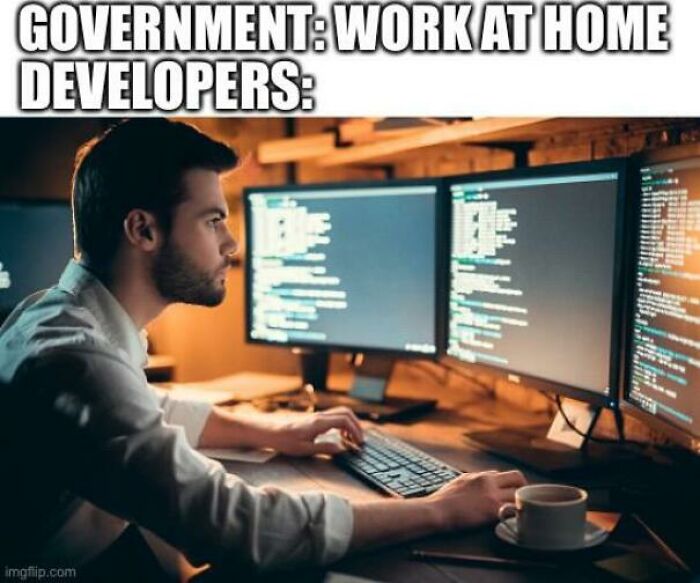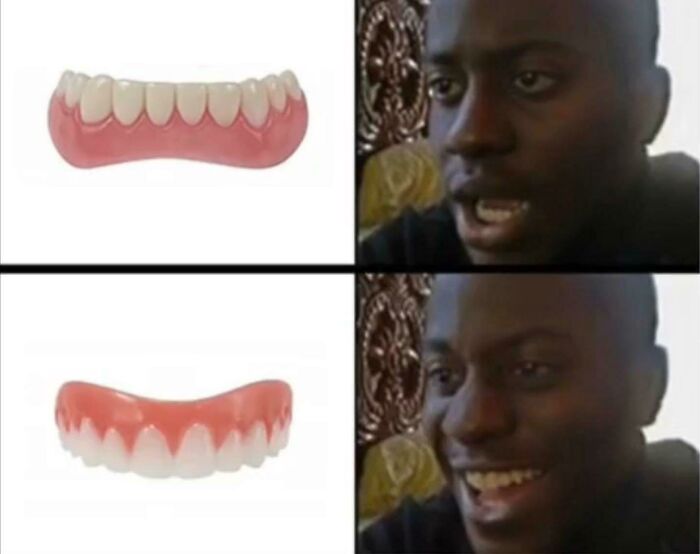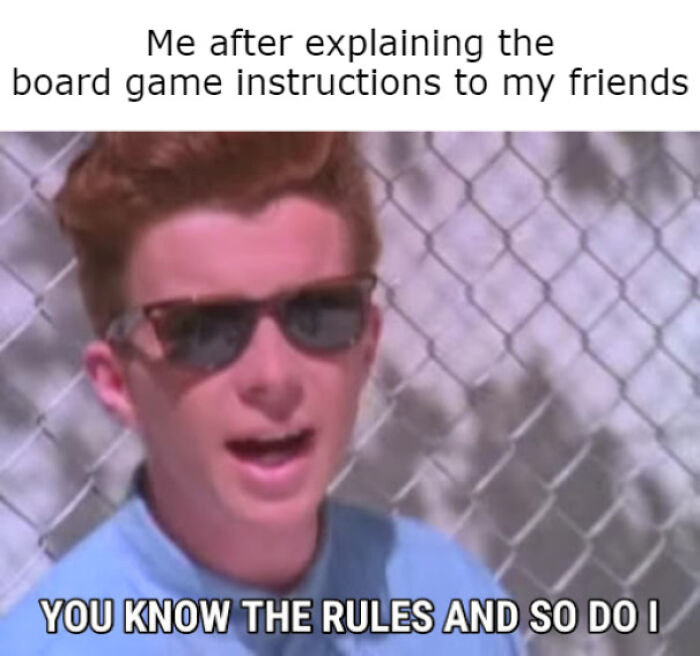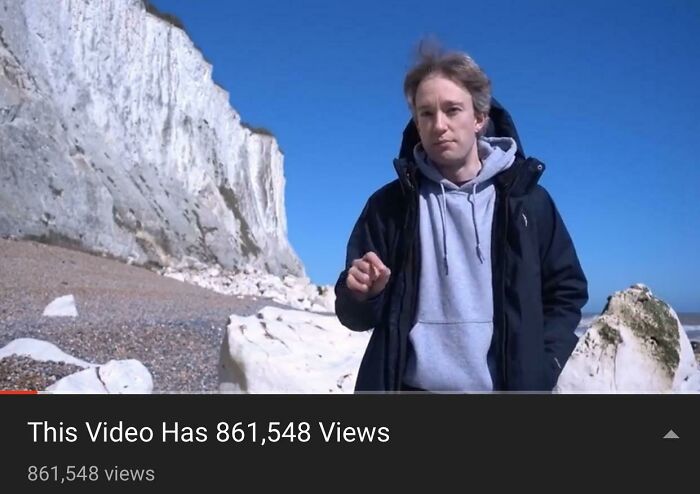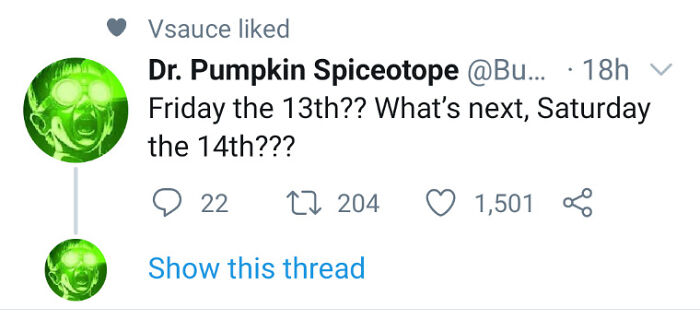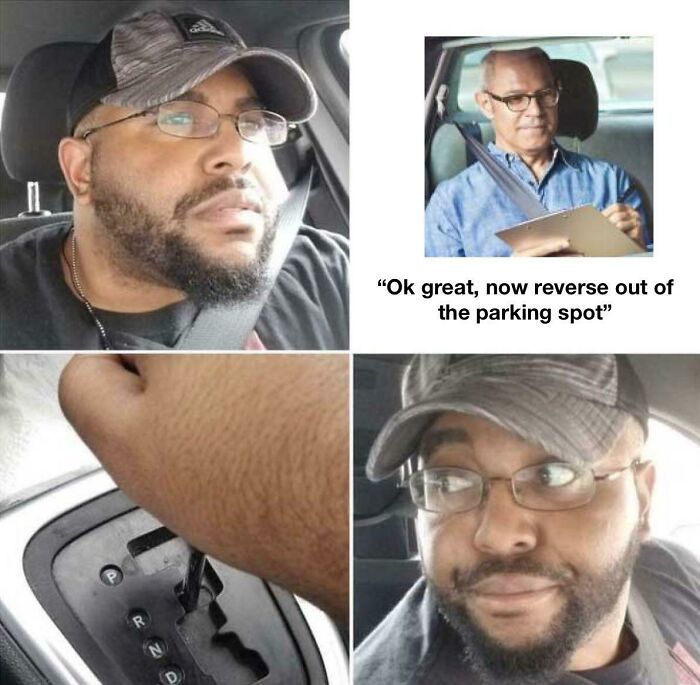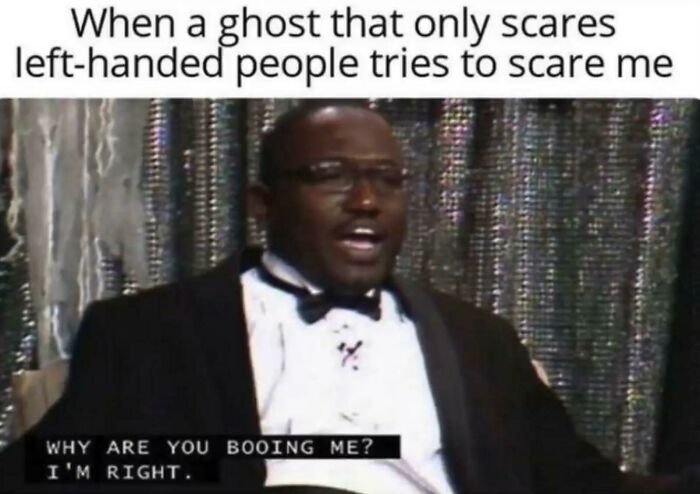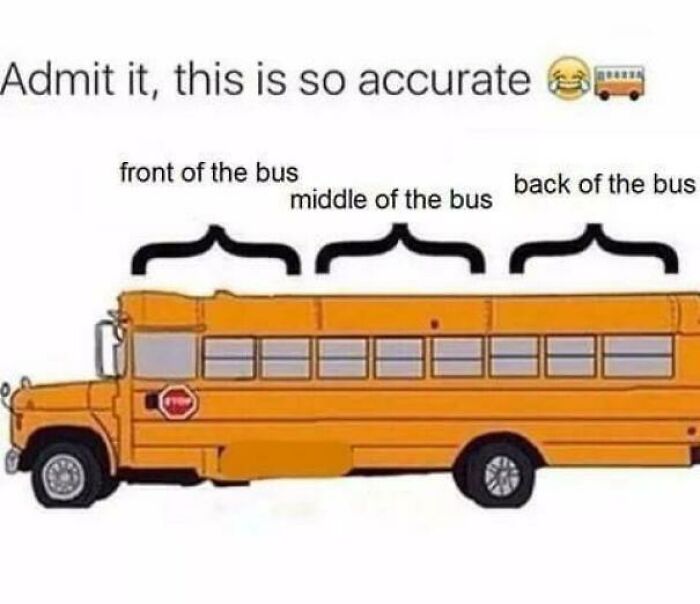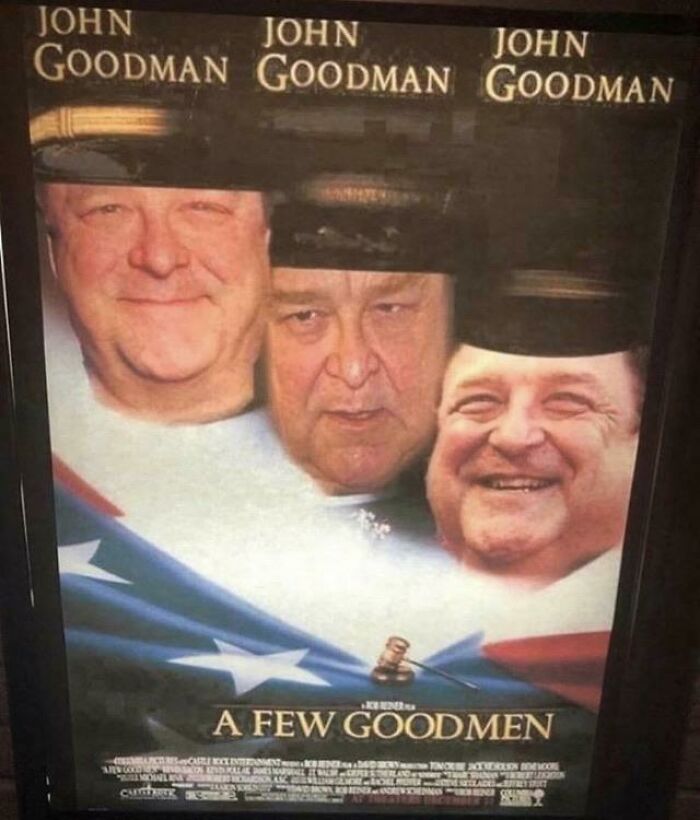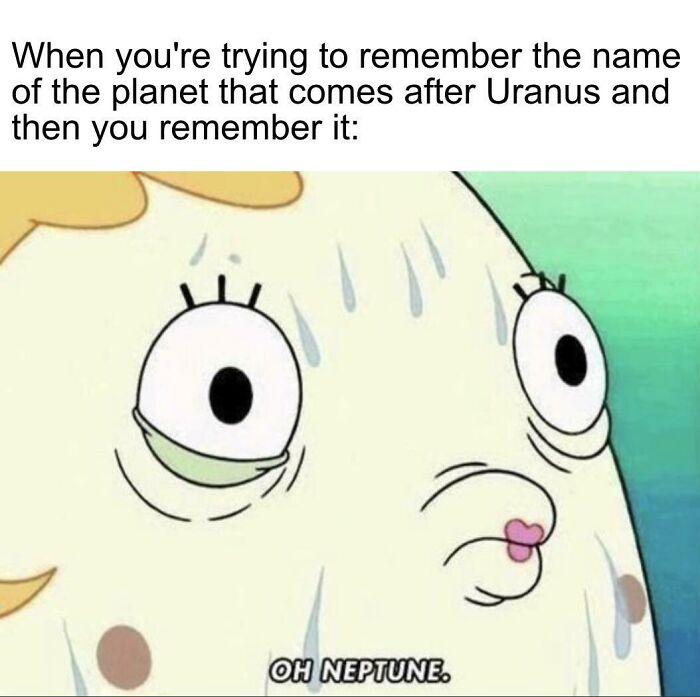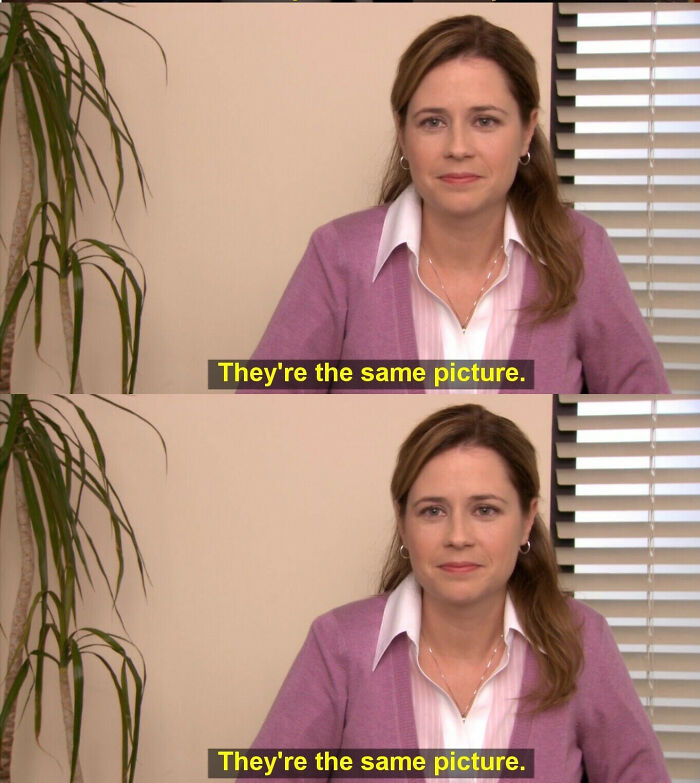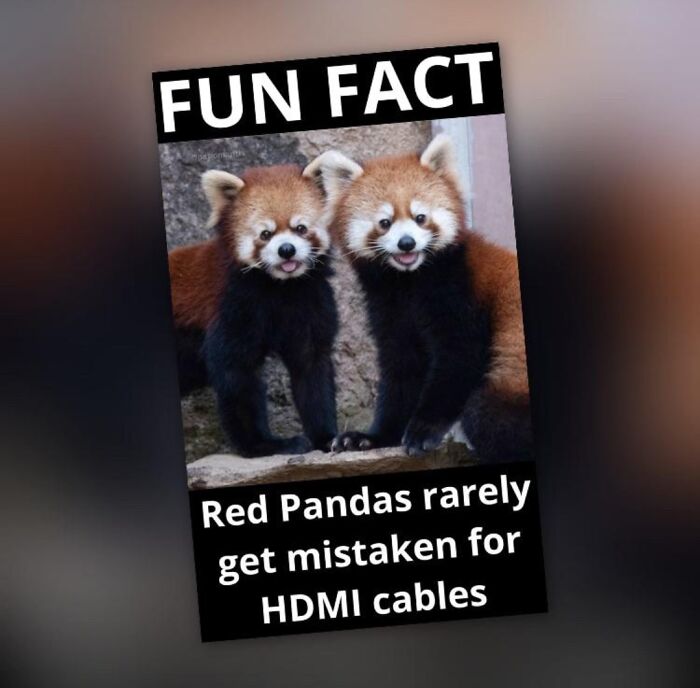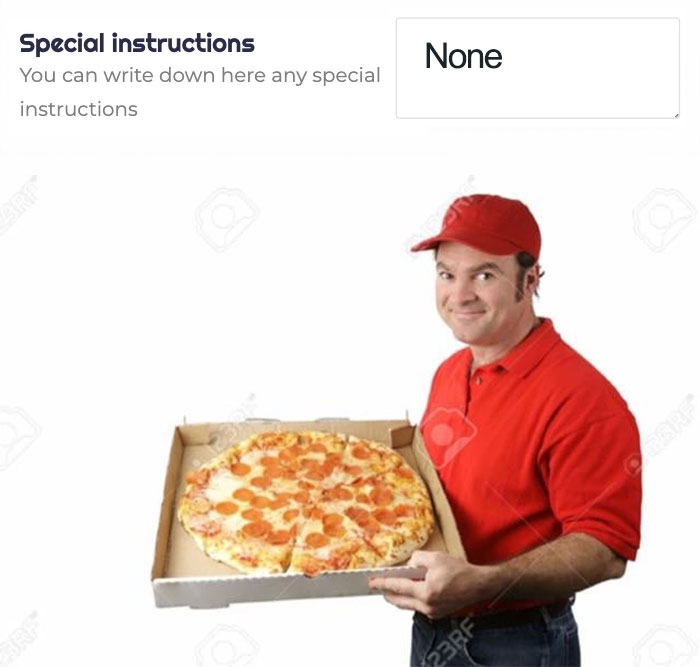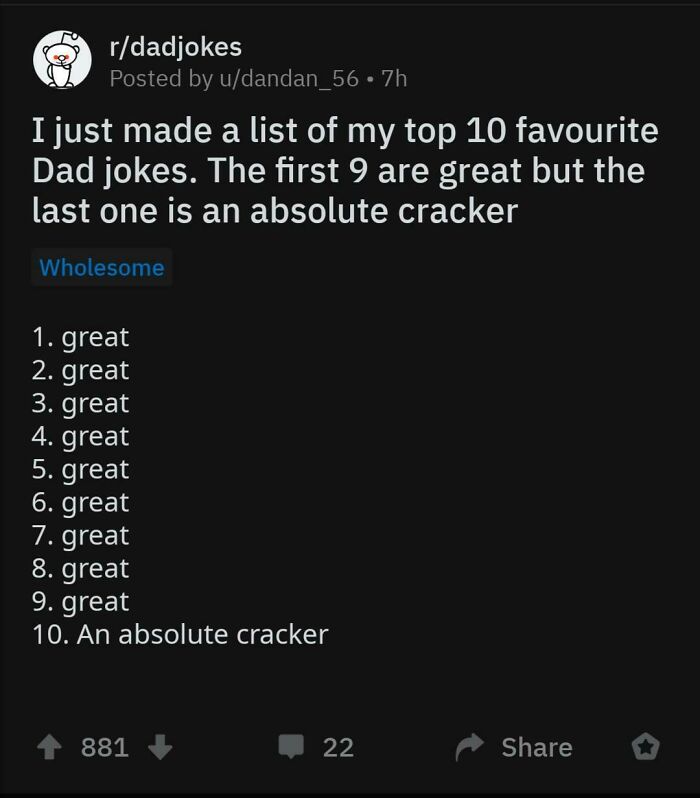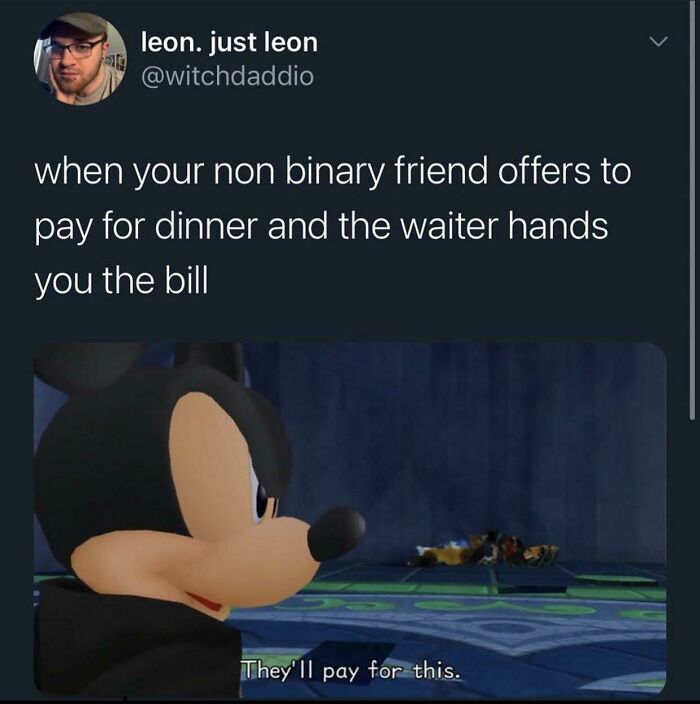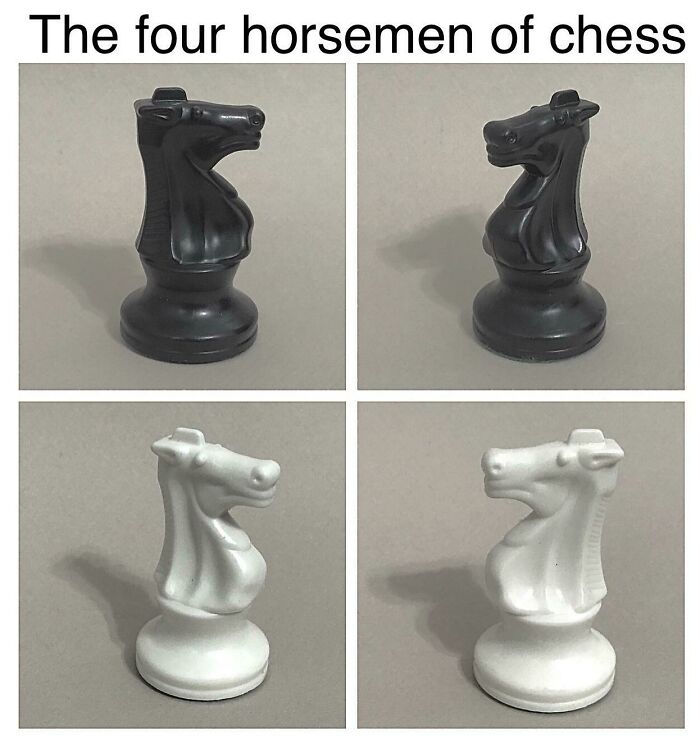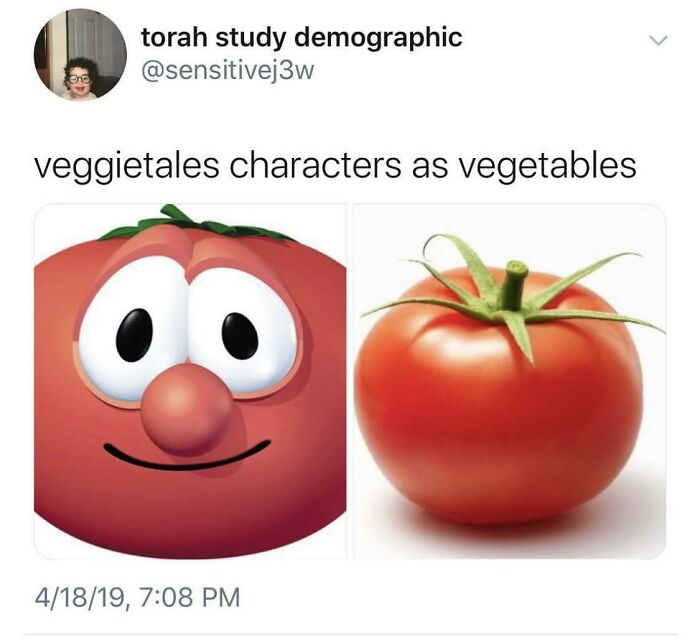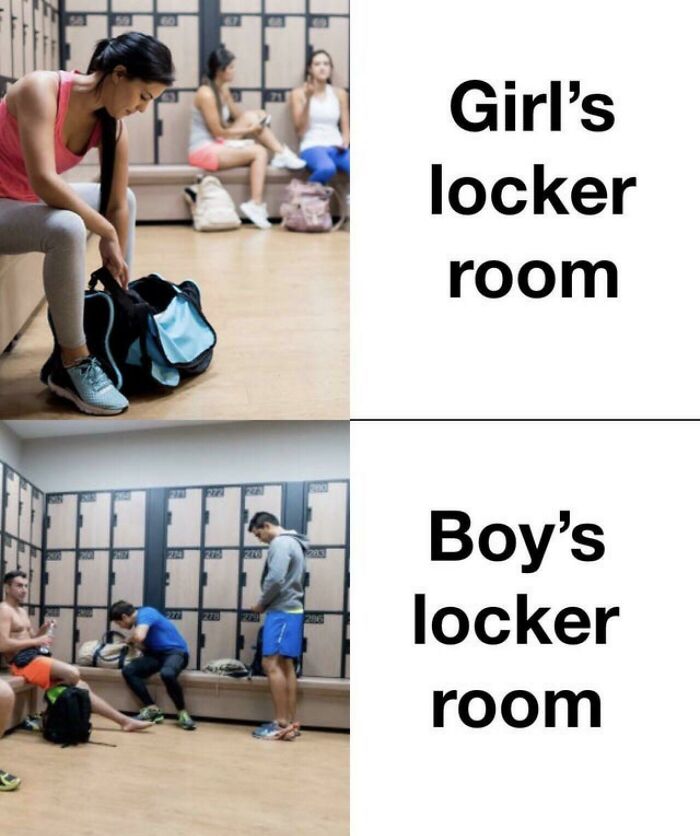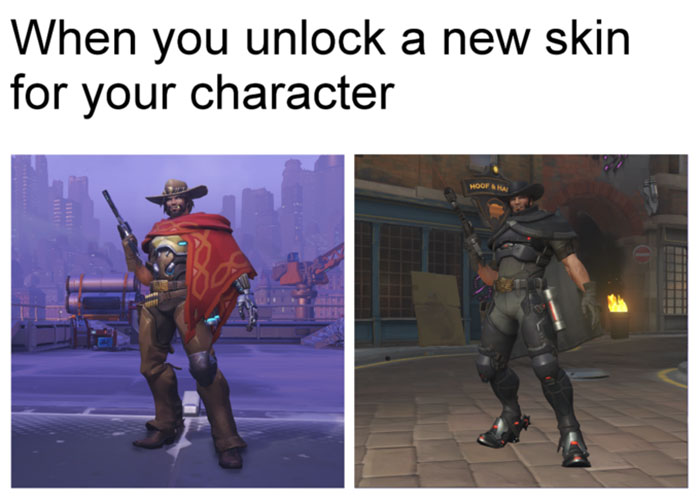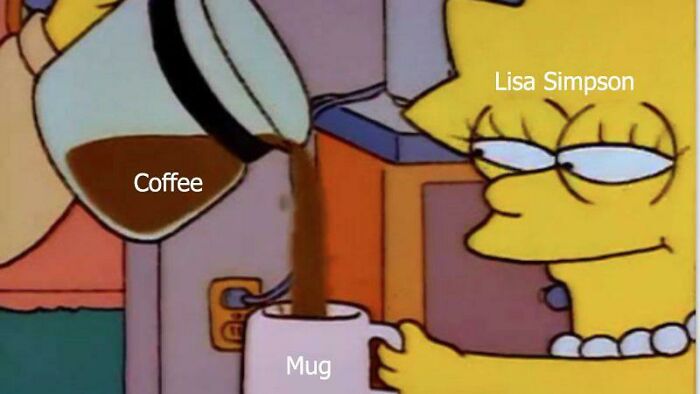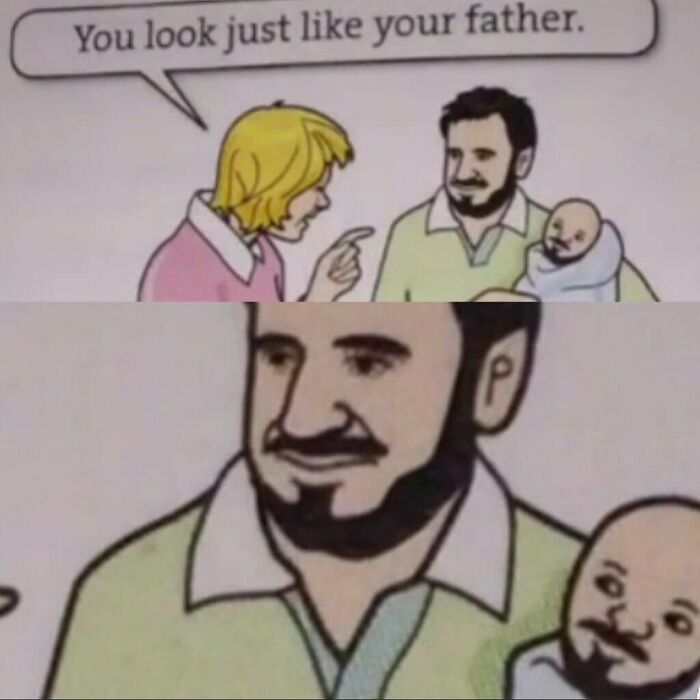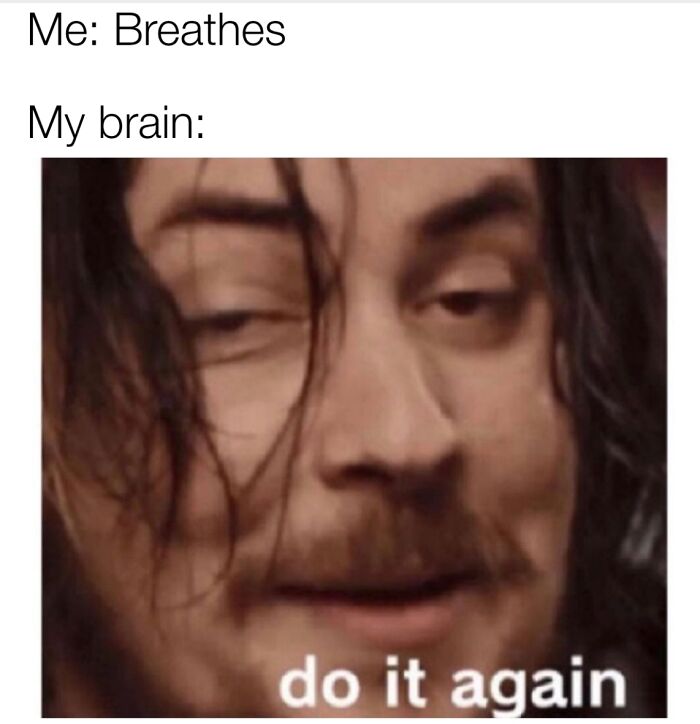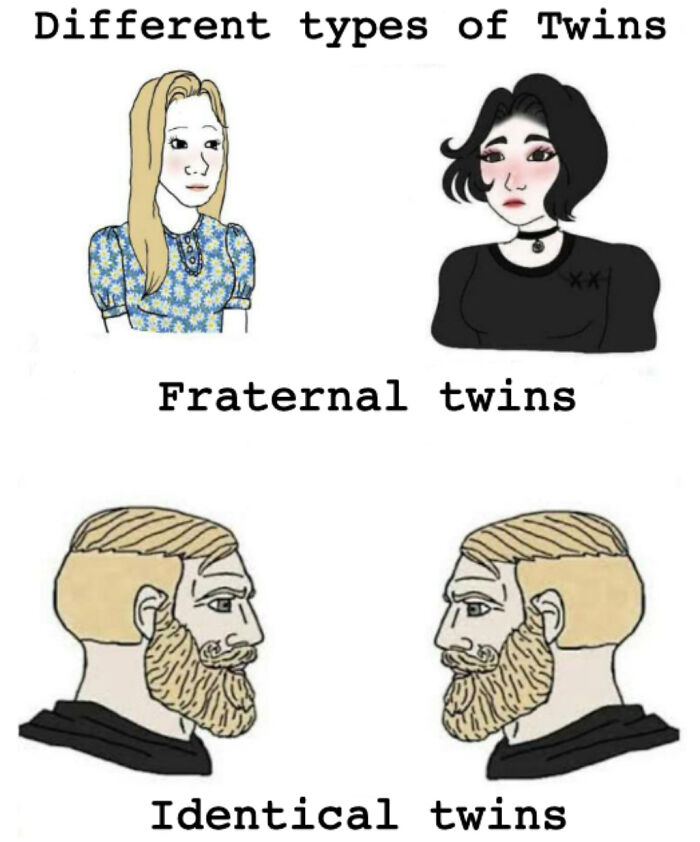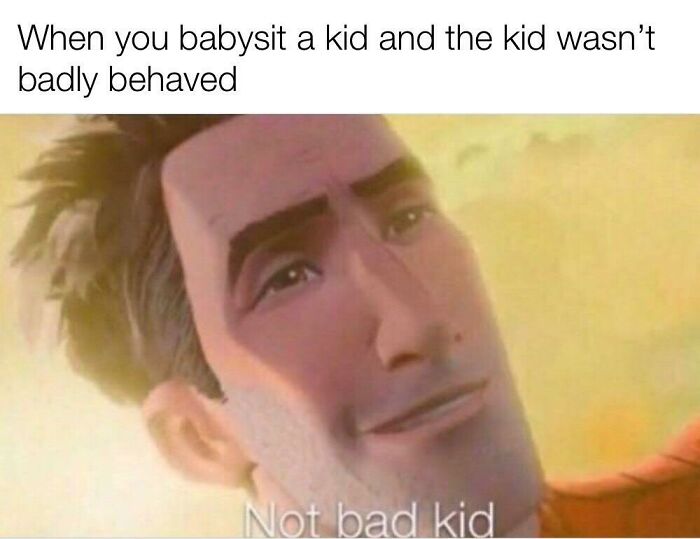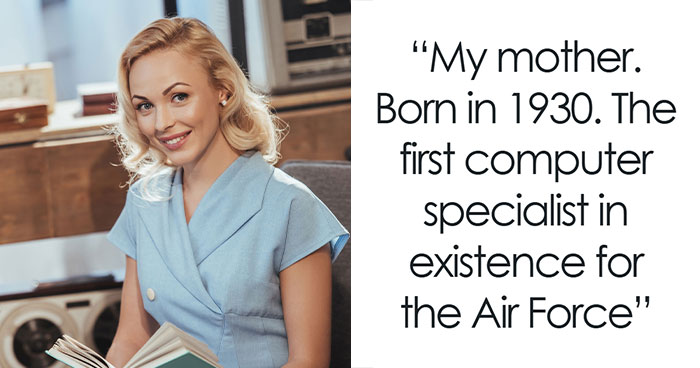Any meme aficionado, whether self-confessed or in disguise, will know that there’s virtually not a single thing you couldn’t make a meme out of.
This is because memes are figurative reactions that combine both visual and textual in what we could call an unofficial language of the internet. From Mike Pence’s fly to Bernie’s mittens, from traffic jams to the year 2020, we’re talking literally everything has undergone a meme treatment.
So it’s only fair that memes would make memes out of themselves. Welcome to the world of anti-memes, a type of meta humor that mocks a variety of our all-time favorite internet memes. According to Know Your Meme, "their origin dates back to January 30th, 2009 with the web comic titled "Internet Anti-Memes & Non-Sensations," featuring illustrations of various absurd and unlikely internet phenomena.”
Now the rest is history, and thanks to the subreddit r/AntiMeme dedicated to sharing some of the best meta memes on the internet, we have a solid collection of what happens when memes make fun of themselves.
This post may include affiliate links.
You Are Welcome
To find out about the complex world of internet memes and the significance they have in our culture, Bored Panda reached out to Bradley E. Wiggins, an associate professor and department head of Media Communications at Webster Vienna Private University. Bradley has been researching digital culture, new media, games and simulations, and intercultural communication throughout his career, including memes, so he was happy to share some very interesting insights on the topic.
When asked what it is about memes that makes them so appealing, Bradley said it’s “humor and the need for humor (perhaps from a need to escape society, critique it, express something otherwise not available to a person in other contexts).”
Lucky My Mum Signed The Permission Slip
Electricity
No One
“Acknowledgment of viral/virtual aspect of online communication as it is inherently highly visual and therefore (1) means people read less online and/or (2) people want or seek out visual abstracts of complicated subjects,” the professor explained and added that “perhaps most critically important to memes that address a politically or socio-culturally topic is the role of ideology.” Bradley also said that individuals who post such memes “may be reinforcing an identity that is essentially an extension of a given ideological practice.”
It turns out, different memes have very different roles. “Memes among far-right propagate hate and/or dis/misinformation willingly but along fairly clear ideological lines; memes can also demonstrate some literacy, for example, those COVID memes that might make fun of social distancing, masks, Zoom, etc. but not in a demeaning way. Rather the function of humor there is to ameliorate a stressful situation but also conveys 'correct' information, i.e. masks are useful, vaccines are important, social distancing is a necessary measure, etc.”
Bird Puns
Stay Hydrated Folks!
This Is A Big Brain Time Question
The professor also explained that memes have become so powerful they have penetrated nearly all aspects of culture, yet at different levels and/or intensities. “For example, in the lead-up to what became the Jan 6 (attempted) insurrection at the US Capitol building, memes and related content posted to 4chan's politics /pol/ board contained very clear indications of violent insurrectionist intent as early as Nov 2020.” Interestingly, “one can't necessarily say that those memes were part of mainstream culture (as problematic a term as that may be),” Bradley added.
Omg
Deepression
A Little Bit Of Anti-Memes
When asked how the professor sees this new trending concept of anti-memes, Bradley said that it’s “somewhat problematic, but instead of nitpicking an argument based on a semantic issue,” he said that “this sub-genre of memes reminds me very much of the one-liner style of humor associated with Henny Youngman, for example.”
The professor continued: “His one-liners are renowned and offer the same kind of one-stop-shop for a quick gag. The droll wit within the sub-genre of anti-memes and Youngman's humor seem at the very least to share a conceptual linkage. Some one-liners from Youngman include: 'Take my wife... please!' or 'A doctor gave a man six months to live. The man couldn't pay his bill, so he gave him another six months.' Or another: 'You have a nice personality, but not for a human being.'”
On the other hand, visually this sub-genre is not monolithic, argues Bradley. “Within the sub-genre are certainly categories where some may be much closer to the one-liner style whereas others (such as the Boys/Girls locker room or general wordplay) are simply attempts at intermemetic humor (memes that mock other memes and/or meme formats),” he explained.
Matt Matt
This Is Fine
Does It Count?
Throughout his extensive body of study on memes, Bradley maintained that perhaps it is best to view memes as a new form of cultural art. “The most sensible link to a previous artform for me is Dadaism. The lesson to be gained from my comparison of Dada and internet memes is to propose that the use of dark and distanced irony is not necessarily unique to the current moment,” he explained.
“However, and with respect to the affordances provided by smart phones, tablets, apps, etc., the ability for large numbers of people to take part in such expressions is endemic to the modern age and unlike anything before or during the Dada and related movements.”
“In digital culture a tendency exists to discuss modern life through invocation and citation of the ironic, satirical, profane, dark and/or offensive humor, etc. in order to make sense of the world – just like the Dadaists and surrealists in the early 20th century,” the professor concluded.
Very Much Correct
Much Better
Why Can’t They Tho
Look at that, will you? An uncensored bit of profanity, and no one's head exploded. It's almost as if profanity can't be offensive. If you know what it means, how can you be offended? If you don't know what it means, you can't possibly be offended.
Lina Survila, the editor-in-chief at “Abstract Stylist” magazine that focuses on internet culture, the digital age, and modern lifestyle, has confirmed that memes have become a huge part of our lives on social media. “As for now, this format has become such an everyday thing that internet users sure found a way to meme that too,” she said.
“There's a meme for every situation you have been in. Now, it's a cultural thing and a tool to reach millions, start a discussion, sell a product or simply have a good time laughing.” So no wonder many brands are joining the trend and use memes as part of their communication to costumes. “Marketing experts now know that a good idea can reach people without any budget, so they embraced the idea and jumped into the game,” Lina added.
Blindness
A Little Bit Of Anti-Memes
Can't Be More Accurate Than This
Tut Tut Tat
There Is No Escape
Colour Blindness
A Little Bit Of Anti-Memes
A Little Bit Of Anti-Memes
England At Home
Not A Single Soul
Old But Gold
Stay In School
Stay Safe Guys
What A Rude Young Man
They buried his good manners alongside his soul, so totally appropriate gesture.
Water
Time To Work
My 10yo nephew is a big supporter of that kind of time management and he always forgets that he has to put on shoes, find his helmet, unlock his bike, find his sports bag....evert time. No learning curve.
My Friends Now Know What An Antimeme Is
Hope This Wasn't Done Before
Wrong Pope
Literally
It's A Long Story
A Little Bit Of Anti-Memes
Man Time Sure Flies
A Little Bit Of Anti-Memes
Rage, immense inner rage is what you're holding in your clenched fist
Literally Every Girl
Flexitime
Developing At Home
We Can Play Now
Desktop Computer.
Nothing Else To See Here
Wrong
Thank You V-Sauce!
Taking A Driving Test Got Me Like
Only Right Handed People Will Understand
This Is So True, Upvote If You Agree
The Goodmen
Duh.
43 seconds because the only way I'd cross that was if giant zombie spider would chase me.
They’re The Same Picture.
Fun Fact
Rarely? Does anyone know anyone who may have mistaken a red panda for a hdmi cable?
A Little Bit Of Anti-Memes
It's Hot Up Here
Calculations
I Gotchu Fam
I Found Them
This Fits I Think
Locker Rooms:
Apparently it's the kind of talk taking place that really makes the difference.
Anti-Meme-Pics
Coffee Being Poured Into Mug
Got Places To Be
Same
We're No Strangers To Prison
The What
Anti-Meme-Pics
Gg
When you are giving kudos to your friend for playing the lead role in a autobiographical film about him
When You’re Taking A Shower:
This is not an anti-meme, it's exactly the meme that's being anti-memed on this page
And Again
Mitosis Go Brrrr
Try having fraternal twins that were boy and girl, and being asked if they're identical...the look on those people's faces when you just stare at them waiting for the penny to drop ...
Kid Not Bad
Some of the puns are such Dad jokes that I enjoy telling them to my son. They're all truly funny, though. More! More!
These have literally nothing to do with "destroying the concept of memes"
Some of the puns are such Dad jokes that I enjoy telling them to my son. They're all truly funny, though. More! More!
These have literally nothing to do with "destroying the concept of memes"

 Dark Mode
Dark Mode 

 No fees, cancel anytime
No fees, cancel anytime 






